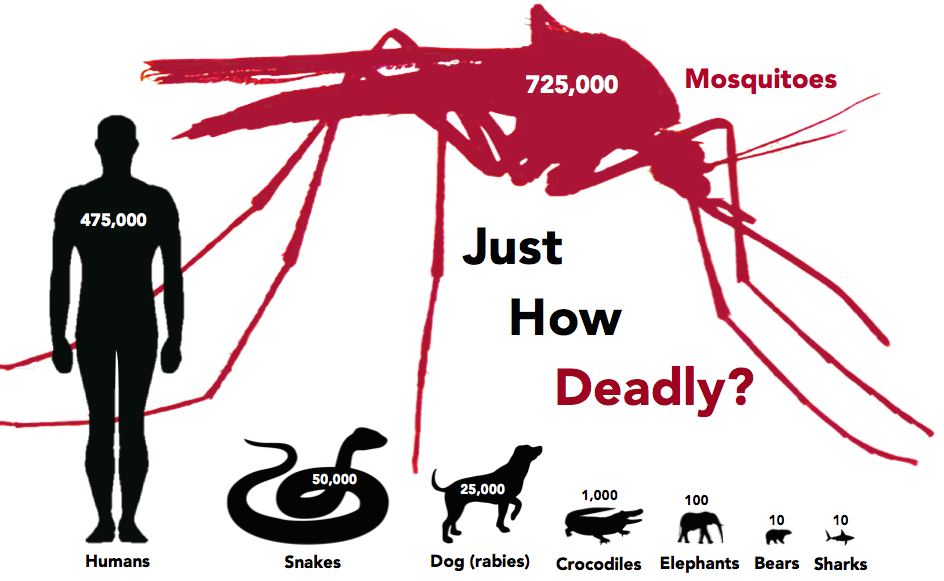About a million people die every year from mosquito bites

About a Million People Die Every Year from Mosquito Bites

Mosquitoes, tiny insects that often go unnoticed, are responsible for causing significant harm to human health. According to research, about a million people die every year from mosquito bites worldwide1^. This shocking fact highlights the urgent need to address and combat the various diseases and illnesses transmitted by these pests.
Mosquitoes are more than just a nuisance during warm weather; they pose a grave threat due to the diseases they carry. These tiny creatures are vectors for some of the deadliest diseases known to mankind, including malaria, dengue fever, Zika virus, yellow fever, and West Nile virus1^. Each of these diseases has the potential to cause severe illness, long-lasting effects, and, in some cases, death.

Malaria, transmitted by the Anopheles mosquito, claims the largest number of lives among all mosquito-borne diseases. It is estimated that nearly half of the world’s population is at risk of malaria, predominantly in sub-Saharan Africa1^. Children under the age of five and pregnant women are particularly vulnerable to this disease.
Dengue fever, caused by the Aedes mosquito, affects millions of people each year, placing a significant burden on healthcare systems in tropical and subtropical regions. Symptoms of dengue fever range from mild to severe, with the potential for dangerous complications and death if left untreated1^.
The Zika virus gained global attention in recent years due to its potential to cause birth defects in infants born to infected mothers. While the virus itself may not be fatal in most cases, the long-term effects on babies’ neurological development can be devastating1^.
Yellow fever and West Nile virus, although less prevalent than malaria and dengue fever, can still lead to severe illness and death in affected individuals. These diseases pose a significant risk, especially in regions where the transmitting mosquito species are prevalent1^.
Preventing mosquito-borne diseases requires concerted efforts on various fronts. Public health organizations and governments worldwide are taking steps to control mosquito populations, raise awareness about prevention, and improve access to proper healthcare and insecticide-treated bed nets in affected areas1^.
Individuals can also play a crucial role in protecting themselves from mosquito bites and reducing the risk of disease transmission. Simple measures such as using mosquito repellent, wearing protective clothing, keeping windows and doors screened, and eliminating standing water sources where mosquitoes breed can significantly reduce the chances of being bitten1^.
In summary, the fact that approximately one million people die each year from mosquito bites is a stark reminder of the ongoing battle against mosquito-borne diseases. Combating these diseases demands a multi-faceted approach involving scientific research, public health initiatives, and individual responsibility. By understanding the risks and taking necessary precautions, we can collectively work towards reducing the devastating impact of mosquito-borne illnesses on global health.
Related Posts
Quick Links
Legal Stuff

